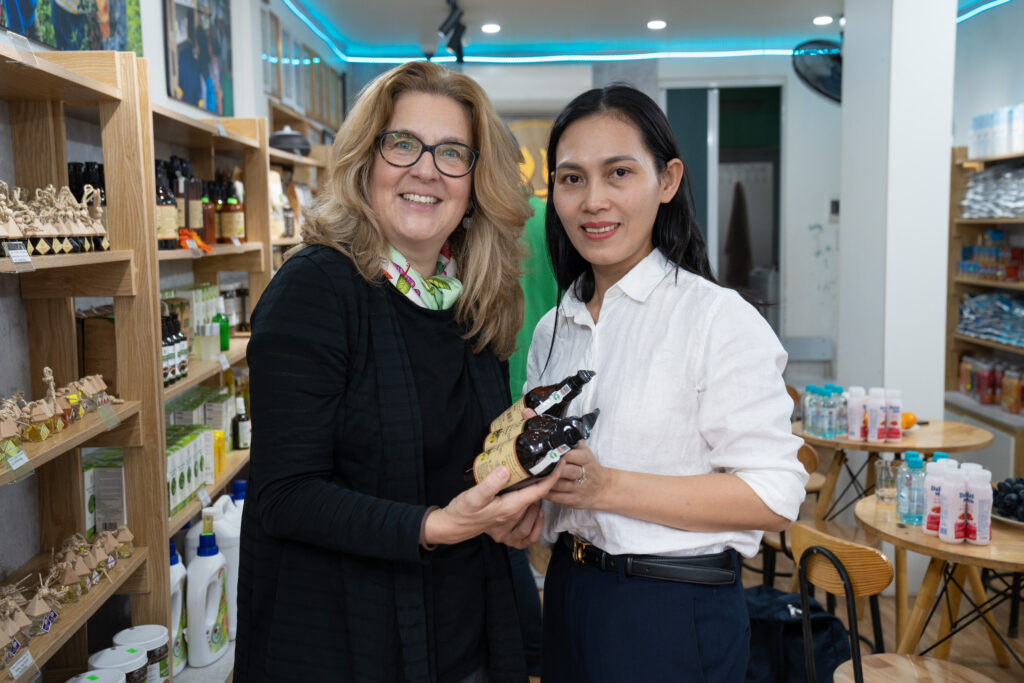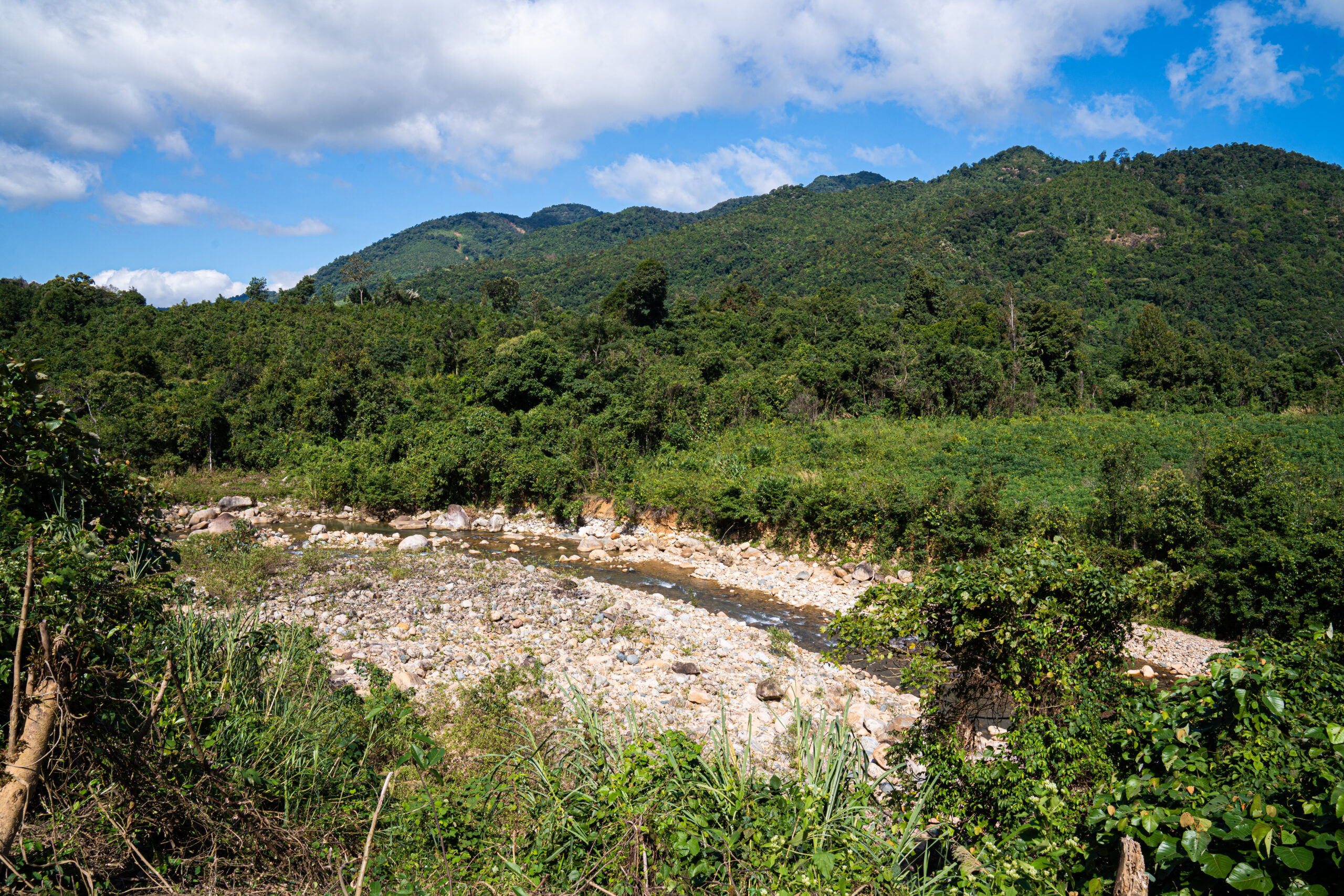Nestled in the heart of Quang Tri province, Vietnam, Nhien Thao is more than just a small enterprise. It is a testament to how sustainable business practices can uplift communities and contribute to climate resilience. Founded in 2018 by Mrs. Dung Tran Thi My, a Vietnamese entrepreneur promoting social and sustainable business, the company specialises in producing natural, chemical-free shampoos, cleaning products, and essential oils from non-timber forest products (NTFPs). Currently, Nhien Thao operates with a dedicated team of nine employees, who contribute to the company’s mission of sustainability and community empowerment. Through its mission-driven approach, Nhien Thao is not only providing high-quality natural products but also fostering economic opportunities for ethnic minority communities while strengthening local forest conservation efforts.

A Vision Rooted in Nature
For Dung Tran Thi My, nature is not just a source of raw materials but an essential part of human well-being. “Nature plays a critical role in human life, affecting our daily existence and development,” she explains. This deep appreciation for nature motivated her to start Nhien Thao (meaning ‘natural herbs’ in Vietnamese), a locally-led business with a clear mission: to create products that are safe for consumers, sustainably harvested from the forest, and beneficial for local communities.
The company sources its ingredients—including black locust seeds, soapnuts, lemon, grapefruit peels, and other natural materials—directly from ethnic minority groups in Quang Tri province. This diversified sourcing approach further strengthens the livelihoods of local communities while promoting the sustainable use of forest resources. Furthermore, these non-timber forest products can be taken from the forest without cutting trees, allowing communities to extract value without harming biodiversity, and providing an incentive to keep the forest standing and healthy. By working with local collectors from 40 ethnic minority households, Nhien Thao ensures that its supply chain is sustainable while improving rural livelihoods.
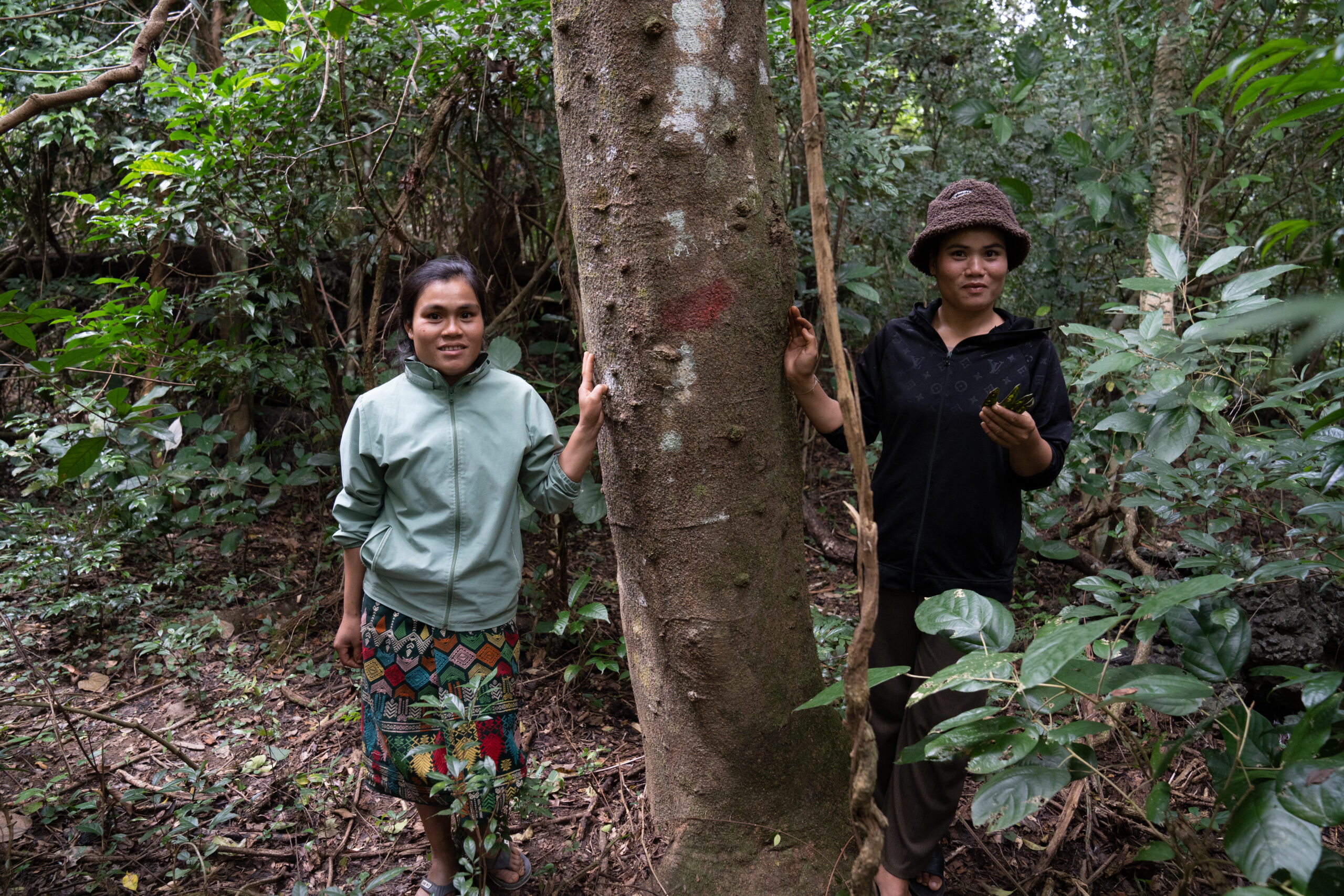
Photo credit: © WWF-Việt Nam
Overcoming Challenges as a Female Entrepreneur
Building a business from the ground up was not an easy feat in Vietnam’s competitive market, particularly as a female entrepreneur raising a family at the same time. Mrs. Dung faced numerous challenges, from establishing trust with community suppliers to navigating the complexities of product development and marketing. However, her determination to grow the business and commitment to positive social impact propelled Nhien Thao forward.
Her hard work was recognised when Nhien Thao won the first prize for the best ‘Nature-Based Business Model’ at the 2022 Central Annamites Multi-Stakeholder Platform event, organised by WWF Vietnam and the Landscape Resilience Fund (LRF). This achievement reinforced her belief that sustainability and economic development can go hand in hand.
Creating Impact Along the Supply Chain
Nhien Thao’s business model is built on a fair and ethical supply chain that supports more than 100 ethnic minority women in Quang Tri province’s Trang Ta Puong village, which has a poverty rate of around 50%. These women from the Ho Van Gioi minority group collect non-timber forest products from community-managed forests by climbing up trees, and ensuring that resources are harvested sustainably. Once collected, the raw materials are transported to Nhien Thao’s processing workshop, where they are carefully extracted and combined with other herbal ingredients to create high-quality herbal shampoos and essential oils.
“Ensuring a stable source of raw materials from the community is key to the sustainable development of the business,” Dung emphasises. The ethical sourcing model not only supports local economies but also strengthens the role of communities in forest conservation.
From the workshop, the finished products are distributed to retail stores and online platforms, reaching a growing customer base that values natural and eco-friendly alternatives. The entire process—from forest to final product—demonstrates a model for green economic growth, where sustainability is embedded at every stage.
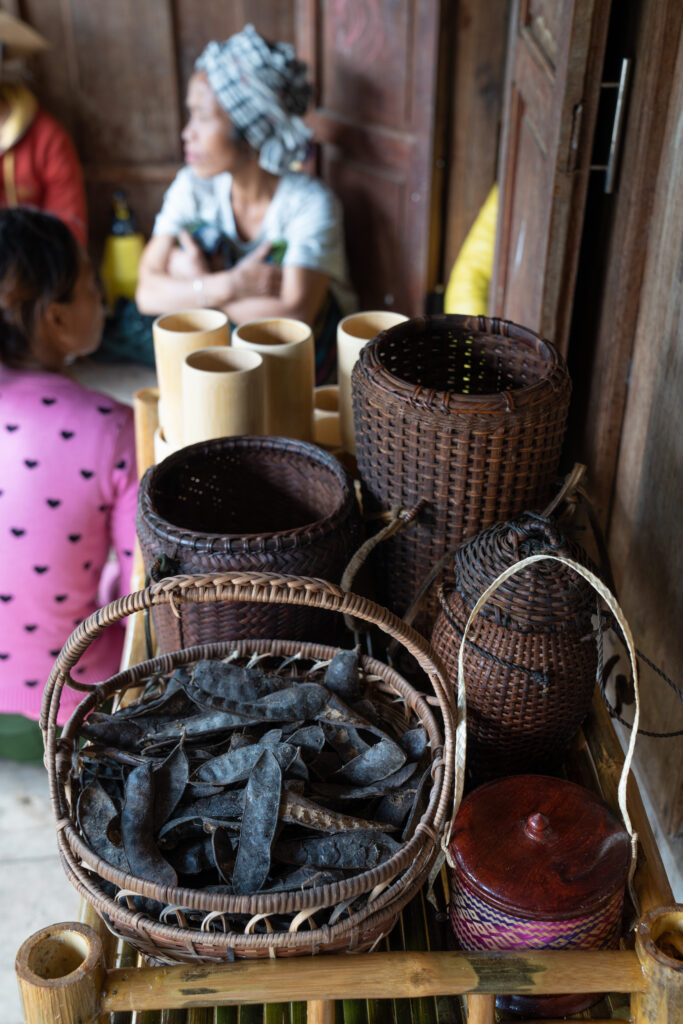
Photo credit: © WWF-Việt Nam
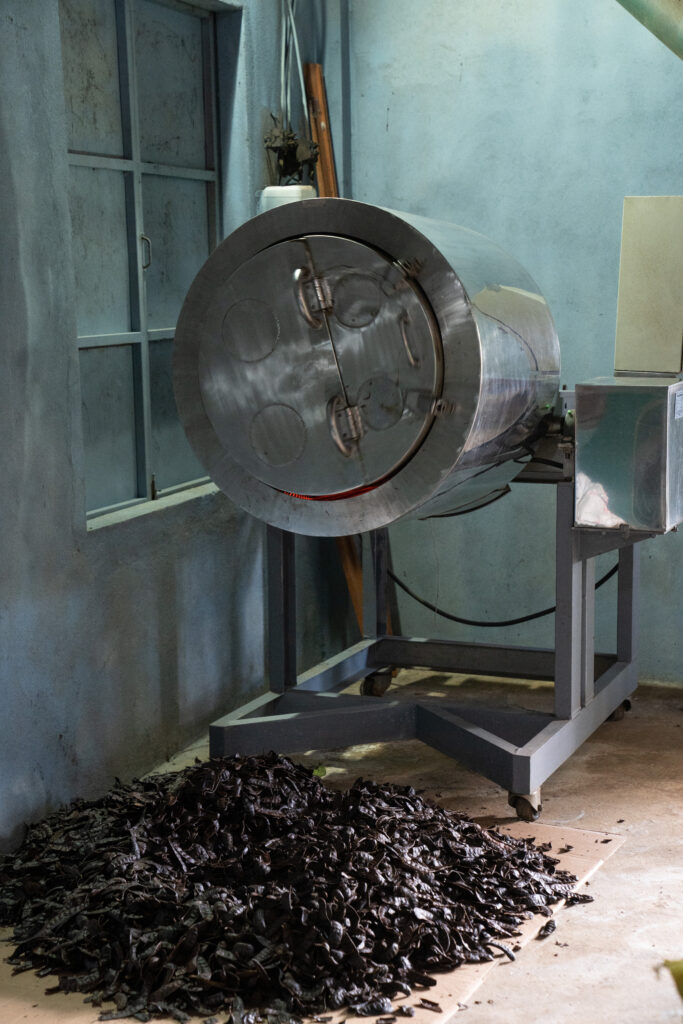
Photo credit: © WWF-Việt Nam
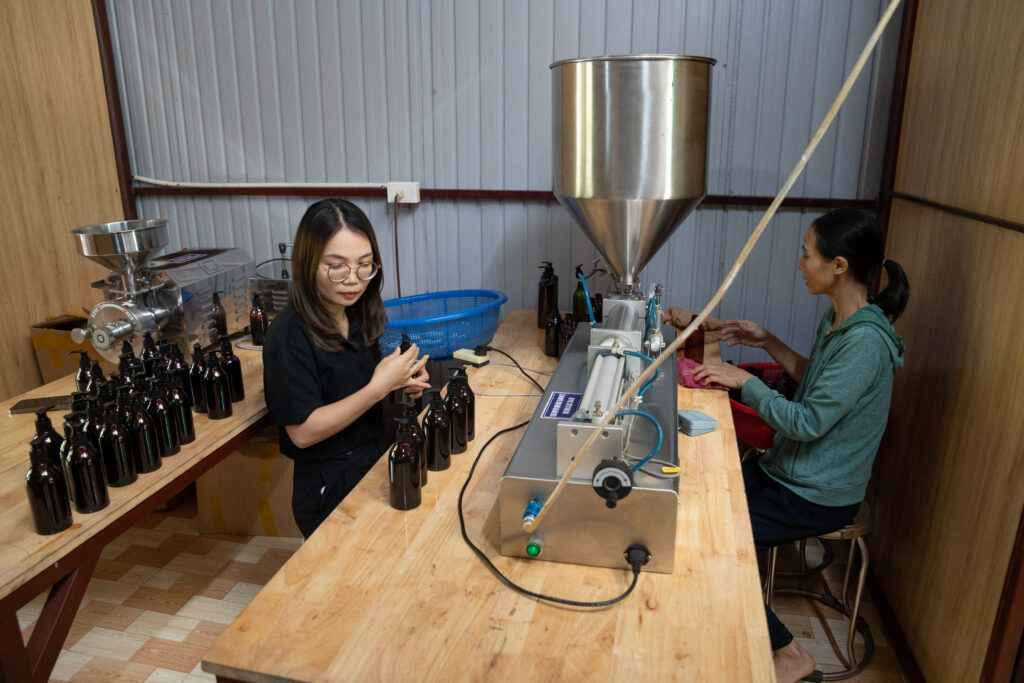
Strengthening Resilience Through Alternative Incomes
Nhien Thao’s impact extends beyond economic benefits. By providing a stable income to local collectors, the company helps rural families diversify their incomes, making them more resilient to external shocks such as climate change or economic downturns. Many farmers rely on coffee and a small number of other crops, which are vulnerable to heavy rains and droughts, both of which are increasing due to climate change, as well as landslides and soil erosion caused by rain and unsustainable agriculture practices. Alternative income from non-timber forest products means rural families can reduce their reliance on other crops, increasing their resilience to a changing climate.
In addition, the sustainable economic use of standing forests, supported by community forest conservation activities, reduces the likelihood that they are degraded by logging or agriculture. Healthy natural forests act as soil stabilizers and are vital to absorb heavy rain, reducing landslides and increasing the resilience of nearby farmland and communities.
The Role of the Landscape Resilience Fund
While Nhien Thao was already operating according to sustainable principles, support from the Landscape Resilience Fund (LRF) and WWF Vietnam has played a crucial role in enhancing the company’s growth and impact. “Engaging with LRF and WWF has helped me focus on key aspects of my business, such as how to invest in long-term relationships, providing stability through purchasing agreements, as well as mentoring on marketing-related topics.” Dung shares.
In partnership with WWF Vietnam, LRF has provided technical assistance to improve Nhien Thao’s marketing strategy, expand its sales channels, and enhance brand positioning. Moreover, LRF supported the development of a profit-sharing mechanism, where 10% of annual profits from the sale of black locust shampoo are reinvested back into local forest conservation efforts. In 2024, local currency worth around US$830 was transferred to the Community Forest Management fund, and the amount is hoped to increase in future years. This initiative directly supports forest management and community patrols, ensuring that 170 hectares of community forests remain protected for future generations and can continue to provide a sustainable supply of non-timber forest products.
Simone Stammbach, Vice President of the Landscape Resilience Fund says: “I am very impressed by Mrs. Dung. She meets all my expectations of a modern, highly committed entrepreneur. Ten years ago, she had the idea of producing fully nature-based essential oils, without chemical additives. Since then, she has remained true to her values.”
Additionally, LRF supported the planting of black locust trees by local communities—an important raw material for Nhien Thao’s products. By securing a stable source of supply, the initiative helps the business and the communities that depend on these resources for their income.
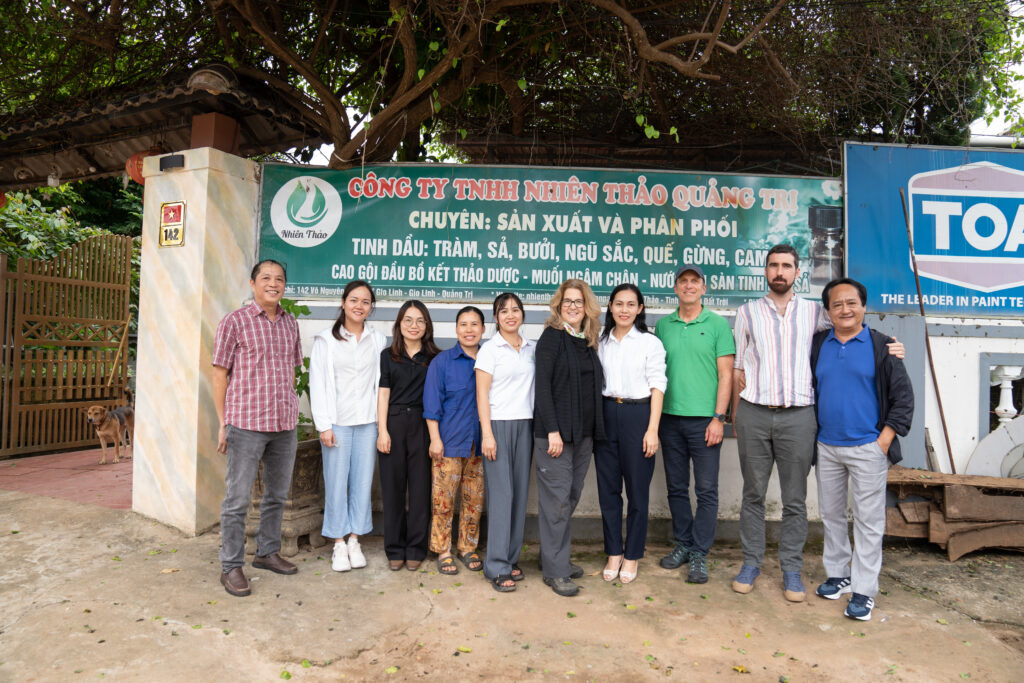
A Future Where Nature and Business Thrive
Nhien Thao exemplifies how small businesses can drive positive local change by blending economic opportunity with environmental stewardship. By empowering ethnic minority women, promoting fair trade, and ensuring the sustainable use of forest resources, the company is not just selling natural products—it is cultivating a future where communities and nature thrive together.
The Landscape Resilience Fund aims to replicate the success of Nhien Thao by supporting other similar SMEs that implement sustainable business models while contributing to building resilient landscapes and societies.
